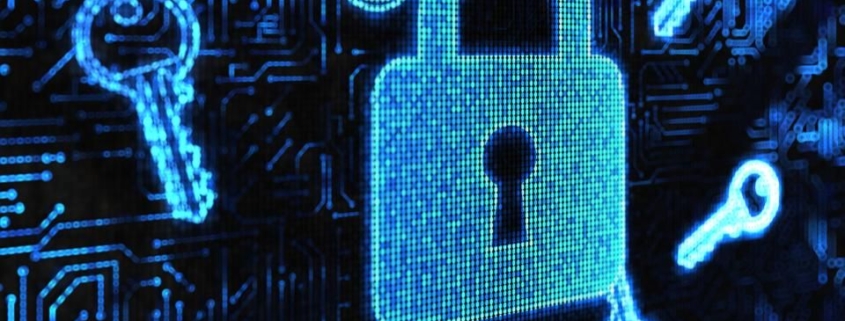National Cybersecurity Awareness Month (NSCAM) has been an annual fixture since October 2003. The goal of the last 16 years has been to raise awareness of the importance of security when it comes to your digital data, and today, that message is more important than ever.
Endless studies and reports are exposing our highly digital consumption habits. A 2019 report from Hootsuite and We Are Social shows we’re spending on average of six and a half hours online each day. Half of that is spent on mobile devices.
We’re spending more time online than ever before. We shop more online, spend more time on social media and do more of our financial and regulatory business online, too. Most of us use banking apps, file taxes online and share images of family, friends, holidays and almost every aspect of life on social media.
Online accounts for our grocery stores, video streaming and a hundred other things all add up, and the result is a huge amount of information about our personal lives out there in the digital world. At the time, how many of us think about entering names, dates of birth and other information when we are asked? It’s easy to put out there, and this is why cybersecurity awareness is so important — not just in October, but all year long.
Own it; secure it; protect it
“Own it; secure it; protect it” was the theme of this year’s NSCAM, with the focus on individual privacy, consumer devices and e-commerce security. All are areas that are increasingly under threat, especially as we approach the holidays, when e-commerce is even more popular.
Despite the increased threat, cybersecurity remains an afterthought for far too many. At a time when we, as a country, are spending more time on mobile devices than TV, the sheer amount of digital data out there about every one of us should make us stop and think. Yet, we are often unaware of the risks posed, never mind what the consequences might be. There are various common areas of attack that are increasingly in use today.
Cloud databases make life easier for us all, with images and messages uploaded to the cloud for easy access. But they are also a significant vulnerability. If you hear in the news that a celebrity had their phone hacked, what likely happened is their cloud storage was hacked, giving the hacker access to all their photos, messages and other data.
Another common threat you will often hear about is a data breach. In this case, a business’s databases or servers are compromised, giving criminals access to everything contained within. That could be your shopping history, credit card numbers and so on. And it happens with alarming regularity.
But that’s not all — biometric data often gives us a false sense of security, but systems are not as secure as we may think. Artificial intelligence (AI) has become so powerful that not only passwords but fingerprints or face detection may be bypassed. With AI quickly growing in sophistication, we must accept that soon, hackers will have access to tools that can overcome these kinds of locks on our devices and data.
What can we do?
The threefold idea behind this year’s theme helps individuals and businesses understand the risks they face and the often-simple solutions that can make all the difference:
• Own it: Update privacy settings to keep your data secure. Know which apps are running to ensure you always know where your data is going. Additionally, stay safe on social media by watching what is shared and with whom.
• Secure it: Create strong, secure passphrases — ideally, a different one for each account. Use multifactor authorization whenever possible, and always watch for phishing attacks. Never click on a link without first checking the sender.
• Protect it: Always protect whenever you connect. Have up-to-date security software on your devices, and be careful with public Wi-Fi. For businesses, always maintain adequate safety protocols for customer data.
To ensure these ideas are acted upon, it is up to us to spread the message and raise awareness. Whether individuals, businesses or government bodies, we must all act. Tell others; raise awareness, and put these ideas into practice yourself. If you are unsure about a site, double-check before handing over your data, and consider cybersecurity software for additional peace of mind.
Conclusion
Staying secure in the digital world shouldn’t be an afterthought. The more we rely on digital solutions for almost every aspect of life, the more vulnerable we become to cyberthreats. NCSAM is a timely reminder that we should all be more aware of that vulnerability and of both the threats and the things we can do to minimize them.
Click here to read Forbes article.



